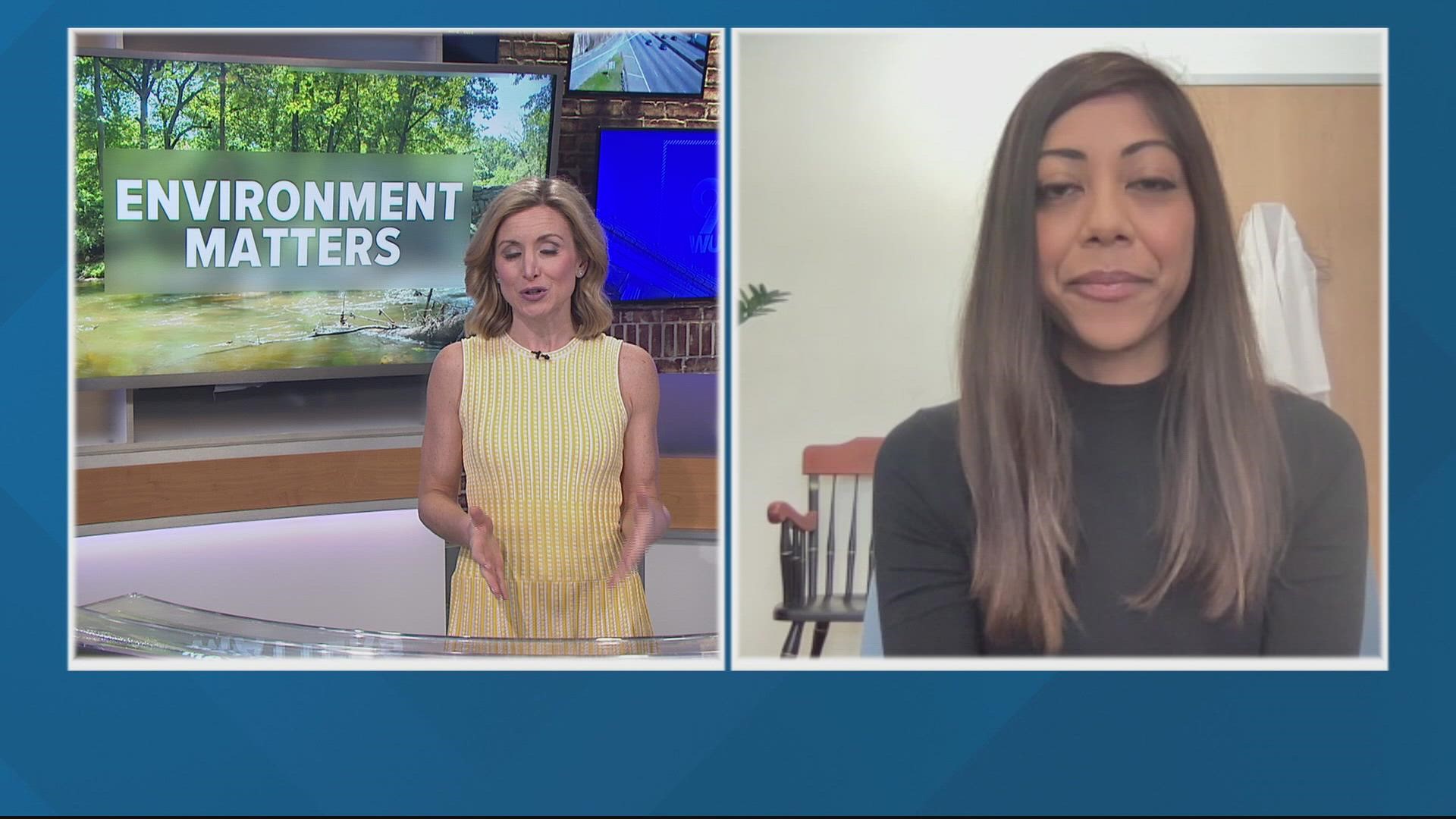WASHINGTON — The runny nose, itchy, watery eyes, and constant sneezes are sometimes indications that your body is in a battle with pollen.
Allergy season is in full swing, and now one of the most potent allergens in the world is at peak season in the DMV area: grass.
The highest concentrations of airborne grass pollen in the D.C. Metro region are found in May and June, according to Chief Microbiologist Susan Kosisky, of the U.S. Army Centralized Allergen Extract Lab.
Kosisky says the annual peak weekly concentrations usually happen from the 3rd week of May through the first week of June.
"Grasses are all over and they are also wind pollinated, releasing abundant amounts of pollen over a relatively short period of time," Kosisky said. "The microscopic, light pollen grains, carrying sensitizing antigens (primarily protein in nature), are carried for miles and miles by the wind. The sensitized individual in their path will likely be sure to elicit symptoms when grass season arrives," she explained.
Here's how the grass pollen concentrations usually break down for the D.C. region by the month:
- May (44.6%)
- June (26.7%)
- July (7.5%)
- August (6.5%)
- September (8.3%)
Grasses that typically stir up allergies in the D.C. region include Bermuda, Johnson, June, Orchard, Rye, Sweet Vernal, Timothy, and Redtop.
Kosisky analyzed grass pollen data over the last 25 years and has found a troubling trend: grass pollen is lingering longer.
"It does seem that grass season is trending longer, with grass pollen seen earlier in the month of March in some years, sticking around into October," Kosisky said.
In addition to grass, Kosisky said ragweed season is just around the corner.
"Ragweed in late summer and early fall is considered to be another potent sensitizer," she said.
Climate's Role
Researchers have been warning that a warmer planet will cause pollen seasons to last longer, and pollen could become more abundant.
What Can You Do
The Asthma and Allergy Foundation of America has these suggestions for reducing your contact with pollen:
- Check pollen counts or forecasts daily and plan outdoor activities on days when pollen counts are expected to be lower.
- Keep windows closed during pollen season or peak pollen times.
- Use central air conditioning or air cleaners with a CERTIFIED asthma & allergy friendly® filter and/or HEPA filtration to reduce indoor airborne allergens (including pollen that may enter your home through doors, windows, on your clothes, and on pets).
- Remove your shoes before entering your home.
- Wear sunglasses, a mask, and a hat or other hair covering when outdoors.
- Take a shower and wash your hair before going to bed (if your hair was uncovered outside).
- Change and wash clothes after outdoor activities.
- Dry laundry in a clothes dryer or on an indoor rack, not on an outdoor line.
- Limit close contact with pets that spend a lot of time outdoors. Wipe pets off with a towel before they enter your home.
- Wash bedding in hot, soapy water once a week.

